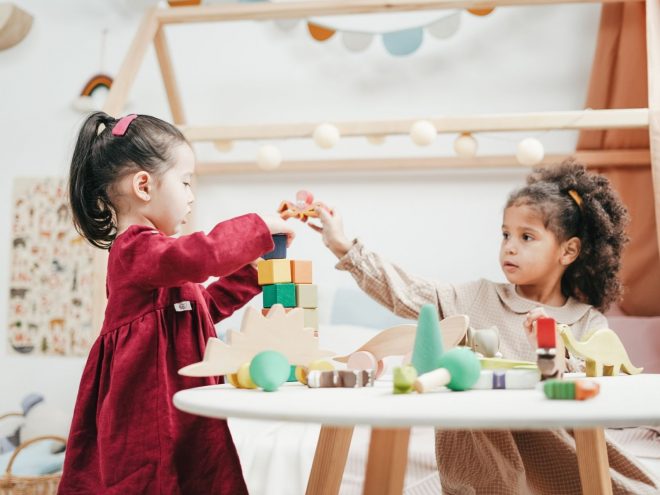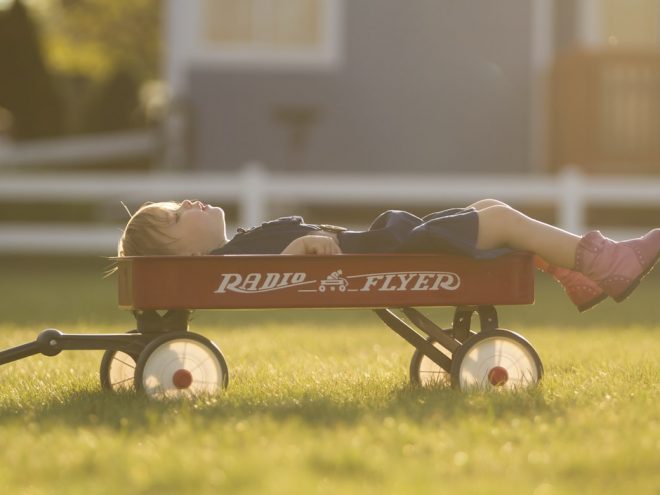Few people enjoy seeing a tearful child, and it can cause you considerable stress as a parent if your child has separation anxiety. You begin to worry about how they are going to react every time you go away.
However much you may love your child, you can’t have them attached to your hip forever. Here are six tips for dealing with separation anxiety in toddlers so that you can part ways without tears.
1. Create a Goodbye Ritual
Since the dawn of recorded history, rituals have helped people process traumatic events and prepare to overcome challenges. Think about the way you prepare for the holidays or an athlete gets ready for the big game. Harness this power to make parting from your little one less painful.
You don’t have to make your ritual complex. Some parents opt for a fist bump or a high-five wave. Others never part ways without a hug and a kiss.
Whatever you do, ensure that your child feels loved. The old rule about not going to bed angry applies — you never know, and you don’t want to part ways on angry words.
2. Maintain a Consistent Schedule
One of the secrets to managing any anxiety is maintaining a consistent schedule. Such a routine provides us with anticipated thinking time that helps you work through any worries or problems instead of letting them build up while attending to a million other details.
Furthermore, once you make leaving a part of your daily routine, it becomes a habit. You don’t waste mental energy on how to drive your car once you master the knack — “Oh, there’s a red light. I better gradually slow down and stop.” Your child will eventually stop dwelling on your departure, too.
3. Help Them Label and Process Their Emotions
Your child doesn’t know what their emotions are. All they know is that they have some very big and scary feelings suddenly overtaking them, and they look to you for help.
You need to teach your child to label their feelings. It helps to print off some emotional faces worksheets or buy a poster to help your little one understand terms like “frightened” and “nervous.” Often, once they can express how they feel in words, it deflates some of their storm’s power.
Please ensure that you validate their emotions, too, or they may struggle to establish a sense of self. Please don’t berate your child by saying things like, “Why are you acting like such a baby?” Instead, acknowledge that they feel anxious and reassure them that you’ll return.
4. Acquaint Them With Their Caretakers
Think about it. As much as you might dislike it when your child hides behind your skirts when meeting the new sitter, you want them to exercise some natural caution around strangers. Those who are too open make easier targets for predators.
Still, once you have established enough trust to leave your child with another adult, you know your little one will be safe in their hands. Your toddler doesn’t. Provide opportunities for them to get to know their caretakers while remaining at home before you head out for date night.
5. Do Short Practice Runs
If you tried to run a marathon the first time you went out for a jog, you’d probably permanently retire your sneakers. Anything challenging requires a gradual approach — it isn’t like ripping off a bandaid. Sudden, traumatic partings can leave scars. Go slowly when dealing with separation anxiety in toddlers.
Schedule short practice sessions where you leave your child with the sitter for no more than 10 to 15 minutes at a time. If your toddler is extremely anxious, you might have to start by only going into another room for a minute or two, gradually extending your time apart.
6. Keep Your Promises
There will inevitably come a time when a traffic jam keeps you from picking your little one up at daycare on time. Hopefully, your child will feel comfortable enough in their new environment by that time that they won’t mind or even notice the delay.
However, if you repeatedly leave your little one waiting on the schoolyard steps in the cold, no wonder they become anxious when they see you drive away. Please keep your promises as often as possible. Remember, that 10-minute coffee stop may feel like no big deal to you, but the time can stretch forever in your child’s mind.
If you struggle with a co-parent who shows up late or cancels visits, document everything. You never want to badmouth the other parent to your child, but their behavior affects your young one’s mental health. You’ll need to back up your allegations if you end up back in court.
Use These 6 Tips to Deal With Separation Anxiety in Toddlers
It can break your heart when your little one cries at your departure. Please use these six tips to deal with separation anxiety in toddlers.





